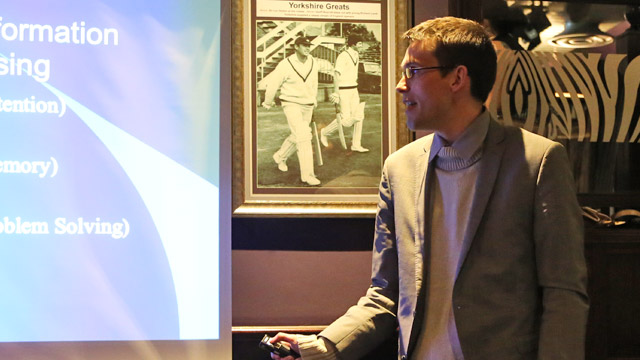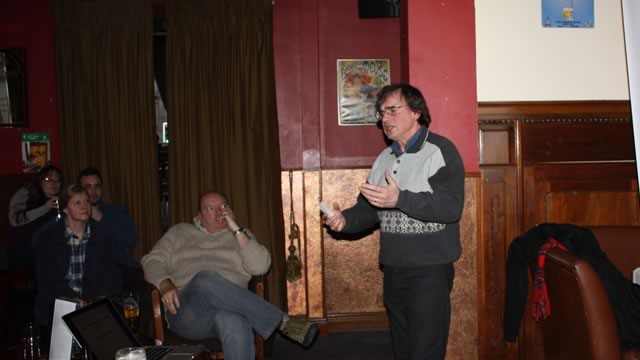Psychology
-

Widening the View: Looking at the limits of Human Perception
After the success of his SiTP talk, the award-winning "You know less than you think", Paul Hopwood is back for the sequel! Based around his Cognitive Psychology studies, the first talk focussed on the different stages of information processing in the human brain. By looking at research into the brain's ability to acquire, store, retrieve and use information; the talk highlighted that humans have a tendency to severely overestimate their ability to perform these tasks.
-

The Modern Face of Physiognomy
The notion that one can judge a person's character on the basis of their facial appearance is an idea that dates back to the ancient Greeks and for a short period, the practice of physiognomy was considered scientific. Despite the fact that this ancient practice has long been discredited, the idea that one can "read" a person's character simply by looking at their face still persists within folk psychology. In fact, this belief and our natural tendency to judge people on the basis of facial appearance has a surprisingly pervasive effect on all of our lives.
-

Superstition - The Odd Delusion
Where does superstition come from? Who are the most superstitious people in the world? Can scientists be superstitious? What about atheists? What's God got to do with it? Does it matter? Just some of the questions we'll explore, touch wood.
-

You Know Less Than You Think
Every day we all make perceptions of people and the world around us. But perception is a two-way process and most people don't stop to think about the biases inherent in their own perception. What are these cognitive biases and how much can they affect our judgement?
-

Brainwashed! A Cult Survivor's Tale
Arthur Chappell describes how he was seduced into an Eastern meditation cult in the early 1980's, despite being an ex-Catholic atheist. The talk takes you step by step through the process of conversion, so that you can see step by step how the cult world wraps itself around you, cutting off exits, making rational thinking and doubt difficult and later near impossible.
-

Superstition
Superstition is often overlooked - while critics of religion have been vocal over the past decade, superstition is actually far more prevalent in our society from phrases like "touch wood" to crossing our fingers and avoiding the number 13.
-

Stop Playing Tricks on Me
The Amazing Leo Dragon presents a talk on the psychology of all things strange, from magic to psychics, from spoon bending to astrology. A whirlwind tour of why people really jump at the explanations given by the "professionals", with some live magic thrown in along the way.
-

Psychology of Anomalous Experiences
Ever since records began, in every known society, a substantial proportion of the population has reported unusual experiences many of which we would today label as "paranormal". Opinion polls show that the majority of the general public accepts that paranormal phenomena do occur. Such widespread experience of and belief in the paranormal can only mean one of two things. Either the paranormal is real, in which case this should be accepted by the wider scientific community which currently rejects such claims. Or else belief in and experience of ostensibly paranormal phenomena can be fully explained in terms of psychological factors.
-

Why do People do Weird Things?
Human behaviour often appears to be maladaptive, pointless, ineffective for its expressed purpose, and even completely absurd. In this talk Michael Heap will examine, with the aid of demonstrations and videos, some examples of odd behaviour that is based on unusual and paranormal ideas and beliefs. These will include healing practices, dowsing, hypnosis, and communication with "the spirit world."
